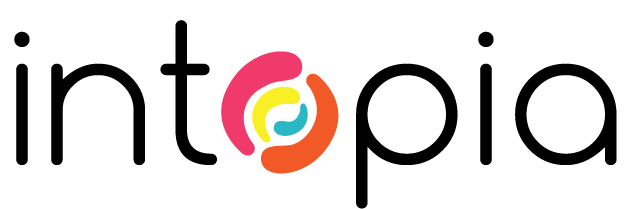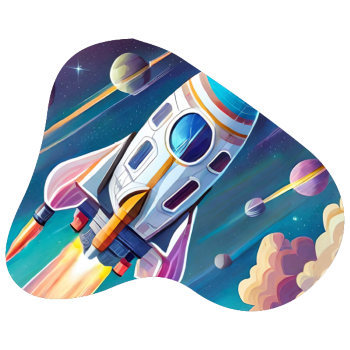Here at Intopia, we strive to make positive change wherever we can. Not just on particular days, but every single day. One of the areas we want to see change in is women in technology. We want to see more women in leadership roles, driving innovation and improving accessibility and inclusive design for all. Equality is a personal issue for us, and it’s something through our organisational commitments that we’ll continue to push for and address.
For this year’s International Women’s Day (IWD), we reached out to the women of Intopia to find out what IWD means to them as women in tech.
Our Accessibility Services Director Sarah Pulis, Digital Accessibility Sensei Allison Ravenhall, and Digital Accessibility Consultant Julie Grundy share their insights below.
What does this year’s IWD theme, Each for Equal, mean to you?
Sarah: The Each for Equal theme means that we are each equal and unique. It also means that we can each make a difference in creating more inclusive environments.
Allison: I hope I’m showing girls and young women that they too can enjoy a long-term career in technology. That it’s fun and normal, not weird, to play with computers and build things. This is me living #EachForEqual.
Julie: Everyone has a contribution to make towards achieving equality for women. Our daily decisions create the environment which either helps women to be the best version of themselves, or restricts them to old-fashioned ideas.
What is it like being a woman in tech?
Sarah: I feel incredibly fortunate to have been accepted as a woman in technology in the different organisations I have worked in. I haven’t had to change myself to fit in, to succeed. I know that isn’t the experience for many women.
Allison: As a digital accessibility consultant, I teach technology teams about the many ways that people use devices, the internet and apps. I work to eliminate inequality through this lens. In my accessibility training sessions for developers, women are always in the minority; sometimes I’m the only woman in the room. It’s been the recurring theme of my whole career. It’s been my normal but it’s not right.
Julie: Being a woman in tech is equal parts fun and work for me. It’s fun to make a contribution to the digital world we’re building, and to use my perspective to broaden other people’s ideas. But it’s also hard work to be pushing back against the societal sexism we’ve all grown up in, even these days when harassment is less common.
What do you love most about being a woman in tech?
Sarah: I love building awareness about accessibility and technology. There is nothing better than inspiring a person to learn more about how to make products and services more inclusive for everyone. And then to see them, 2 months, 2 years, 5 years later becoming an expert or advocate themselves.
Allison: I’m proud to work at Intopia, where women outnumber men by 2 to 1. I’m happy that younger women in tech discuss their work and careers with me, because I never had a female mentor when I was their age. I like speaking at tech conferences, to spread the accessibility word and to remind everyone that women over 40 still say important things.
Julie: What I love most is building a more accessible digital world. Every fix we make opens up more opportunities for a wider range of people. As someone who’s been in the tech industry for a long time, I love being able to support my peers who are new to the work or who are marginalised in more than one aspect of their lives. The more women of colour and women with disabilities I get to work with, the better my own output becomes. It broadens my perspective, and challenges my preconceived ideas. Diversity and inclusion, like accessibility, is a benefit to everyone.
What advice would you offer to women just starting out in this field?
Sarah: My first piece of advice – get out there and do good work. I never had a career plan or career aspirations. That’s not to say that they aren’t useful, but I never worked to a plan. I saw things that needed to be done and I did them. In hindsight, I realise people noticed what I was doing, even if that wasn’t the reason I did them. My second piece of advice – believe that you can do anything. If you had told me when I started out in technology that I would be co-owner of a successful digital accessibility agency, I would never have believed you. Some days I still don’t.
Julie: If you’re just starting out in this field, I’d absolutely recommend going to a meetup for a topic you’re interested in (like accessibility!). Or try a meetup or event that’s specifically for women in tech and is designed to help people get to know each other. Knowing even just one familiar person when you go to a tech meetup can make it so much easier to show up.
What could businesses do to work towards equality in the workplace?
Sarah: Organisations need to recognise that diversity is not a binary equation. It’s not just gender, or just culture, or just disability. Too often just one dimension is looked at to the exclusion of others. To succeed, environments must be inclusive and welcoming. Often organisations are still paying lip service to inclusivity. They focus on inclusive recruitment practices but not setting individuals up for success when they are actually in an organisation. This include culture, environment, opportunity, and accessible technologies.
Julie: I’d love businesses who want to work towards equality to look not just at their hiring practices, but also at their promotion practices. There are a lot of structural problems with the way we do these common tasks, but they’re fixable. Don’t just hire a bunch of women as juniors – train them and promote them to a role where they can create real change.
You can find out more about International Women’s Day through the International Women’s Day website, or follow the #IWD2020 hashtag on social media.
Are you looking to make change for women in the technology sector? Contact us, we’re keen to hear what you’re working on and hopefully we’ll be able to help out.

